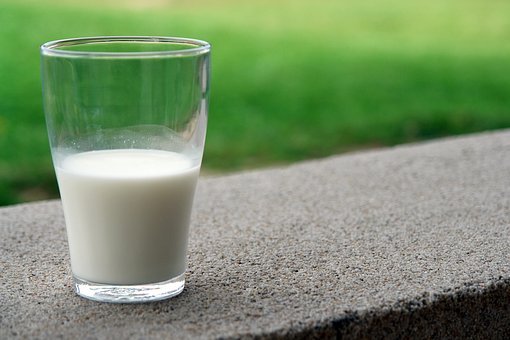The Bottom Line on Bone Health
Let's start with how much calcium our bodies need every day. Most adults up to age 50 need about 1000 mg daily. Adults over 50 need at least 1200 mg to as much as 1500 mg every day.
Not a milk drinker? Dark green vegetables like kale, Chinese cabbage and broccoli are calcium rich, and contain 100-200 mg per one cup serving, about half of what you'd find in a glass of milk.
It's hard to meet our calcium needs from the diet alone, and many people, including me, find a calcium supplement a good support here. These do not replace calcium from foods, but are a helpful addition. Aim to get at least half your calcium intake from foods. Choose a supplement containing 400 mg of vitamin D, to help maximize absorption. Limit your dosage to about 500 mg of calcium at a time, since the body can't absorb more than that at once. The rest will simply be eliminated.
When it comes to bone health, calcium and vitamin D go hand in hand. Vitamin D is not found in many foods, except for fatty fish, but is always added to milk and dairy products. In the perfect world, we wouldn't need to consume vitamin D, since we can produce it in our skin, when exposed to sunlight for just 10 minutes a day. Nowadays, we wear sunscreen, and spend a lot less time outside, so this is not a reliable method. The recommendations for vitamin d are 800 mg for adults. Take a daily vitamin to ensure your needs, particularly if you don't consume dairy products.
And another thing we can control: our activity. Remember that weight-bearing exercise - like lifting weights, or walking - is a major plus for bone strength. Estrogen also helps protect our bones, so mid-life women and older need to pay particular attention to the lifestyle efforts that protect bones.
You can maintain strong bones with a one-two-three combination of calcium, vitamin D and weight-bearing exercise.

Hi there 😊. Fair points. Calcium is indeed important, and suplements won't ever replace the real source. But sorry I don't agree with everything you wrote. For example, low-fat dairy isn't actually good for health. Especially most of the products we get are processed anyway. So cheese and yogurt - yes. But no low fat. Milk not necessary. And as always it would be good to simply have well balanced diet, rich in various products. For example some seafood, many seeds like sesame and chia, or white beans include a lot of calcium too. All of all it can save you. Not necessary only dairy products themselves. Cheers!